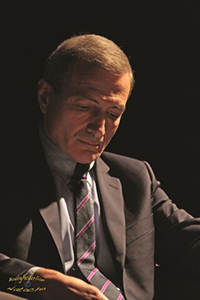PARIS (News.am) — On July 31, news.am published the following interview with Philippe Raffi Kalfayan, PhD in International Law, Associate-Researcher at Paris Pantheon-Assas University, Legal Counsel to Governments. He is also a regular columnist for the Mirror-Spectator.
News.am: Azerbaijan continues to illegally keep 23 Armenians in Baku prisons. From the application sent by Ruben Vardanyan’s legal team to the United Nations Special Rapporteur on Torture, we have learned that he is being tortured. Surely, other Armenian prisoners are subjected to torture and cruel treatment, as well. According to you, in this case, what should the state do to protect its citizens, what should human rights organizations and NGOs do and what should the Diaspora do?
I need to remark on how the question is posed.
First, there is no doubt that prisoners of Armenian descent have been subjected to torture and to cruel treatment in the past, including the prisoners of war. Some of those cases are documented and have been reported to the UN Committee Against Torture (CAT) during its last session in April 2024. CAT was reviewing Azerbaijan’s situation in the framework of the periodic review. It concluded: “The Committee was alarmed by alleged extra-judicial killings, torture and ill-treatment of national and ethnic Armenians during armed conflict and anti-terrorism operations, and the perceived lack of investigations and prosecutions of these allegations. It also expressed concerns over the continued detention of 23 individuals of Armenian ethnic or national origin for terrorism and related offences. The Committee urged Azerbaijan to state at the highest levels that any violations of international humanitarian law and human rights law are unacceptable. It also called for independent, impartial, transparent and effective investigations into the allegations of serious violations and urged the State party to bring those responsible to justice.”
The UN Committee’s findings have stronger legal force that any procedure engaged by UN special procedures (the Special Rapporteur on Torture is one of them). Azerbaijan has an obligation to respond to UN Committee against Torture, since it is a party to the Treaty prohibiting torture and ill-treatment, while it may decide without consequence to not respond to the Special Rapporteur.
Meanwhile, all channels, be they treaty bodies or special procedures, must be used by NGOs and lawyers in regional (European) and international forums. Each record of violations of international law is a precious element for current and future judicial proceedings against Azerbaijan, as well as for awareness of governments, legislative bodies and intergovernmental institutions around the globe. This is where the diaspora and the diplomatic apparatus of the Republic of Armenia must act in a concerted manner.








